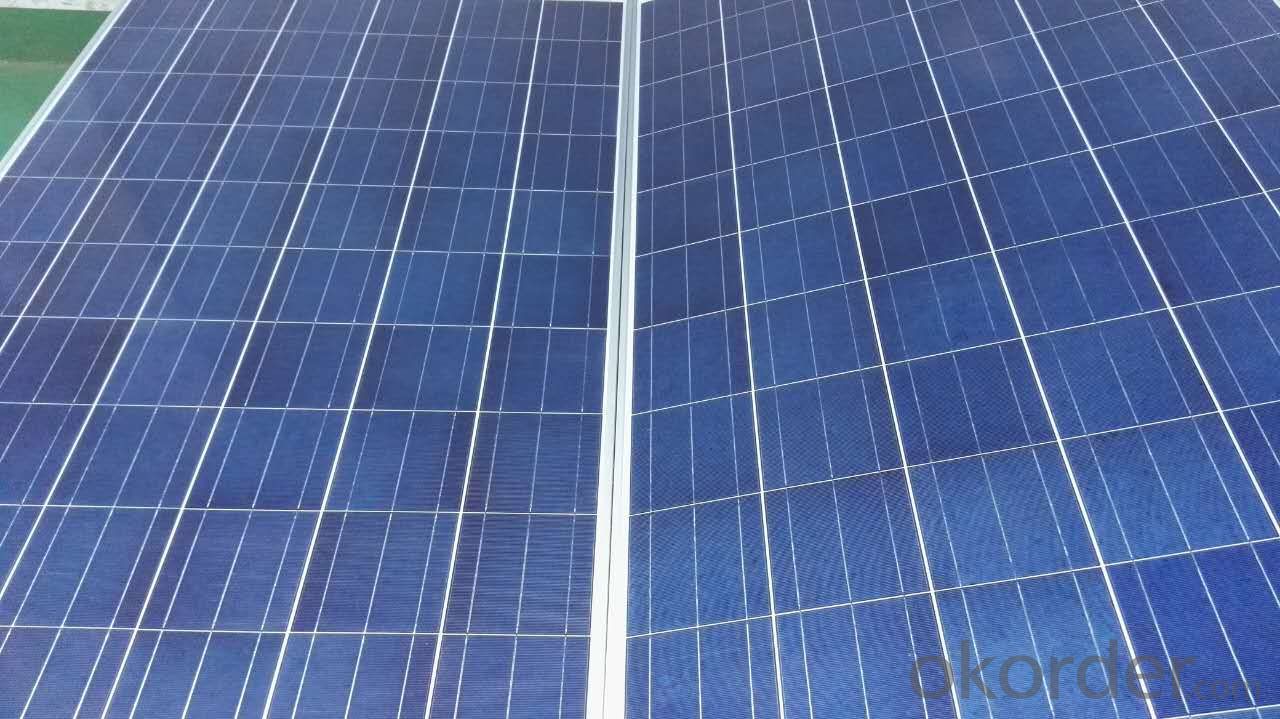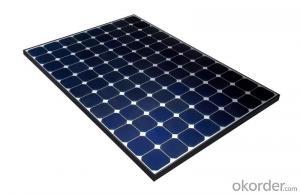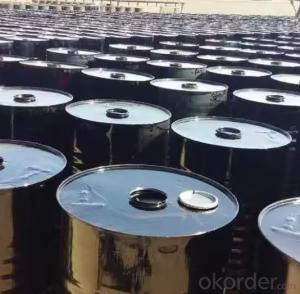CNBM Poly 200W Off Grid Solar Sytem with 10 Years Warranty
- Loading Port:
- Tianjin
- Payment Terms:
- TT OR LC
- Min Order Qty:
- 100 watt
- Supply Capability:
- 1000 watt/month
OKorder Service Pledge
OKorder Financial Service
You Might Also Like
Item specifice
CNBM Poly 200W Off Grid Solar Sytem with 10 Years Warranty
Product description
Off-the-grid is a system and lifestyle[1] designed to help people function without the support of remote infrastructure, such as anelectrical grid. In electricity, off-grid can be stand-alone power system or mini-grids typically to provide a smaller community with electricity. Off-grid electrification is an approach to access electricity used in countries and areas with little access to electricity, due to scattered or distant population. The term off-the-grid (OTG) can refer to living in a self-sufficient manner without reliance on one or more public utilities. People who adopt this lifestyle are called off-gridders.[2]
The State of California is encouraging solar and wind power generation that is connected to the electrical grid to avoid the use of toxic lead acid batteries for night time storage.[12] Grid-tie systems are generally less expensive than off-grid systems due to the lack of additional equipment like charge controllers and the batteries. However, some systems may mitigate this difference by using old car batteries that can no longer supply enough current to start a car.[13]

Application
Residential
Commercial
Industrial
Feature
Off-the-grid homes are autonomous; they do not rely on municipal water supply, sewer, natural gas, electrical power grid, or similar utility services. A true off-grid house is able to operate completely independently of all traditional public utility services. The idea has been recently popularized by certain celebrities including Ed Begley, Jr.[3] who stars in the Living with Ed[4] television show on the Home & Garden Television (HGTV) network. Actress Daryl Hannah promotes off-grid living and constructed her home in Colorado according to those principles, as does survival expert and Dual Survival co-star Cody Lundin,[5] who lives in a self-designed, passive solar earth house in the high-desert wilderness of Northern Arizona, collecting rainwater, composting waste, and paying nothing for utilities.[6][7]
Packaging
With carton and box
- Q:How do solar energy systems impact the local economy?
- Solar energy systems can have a positive impact on the local economy in several ways. Firstly, they create job opportunities in the installation, maintenance, and manufacturing sectors, boosting employment rates and income levels in the community. Additionally, solar energy systems reduce energy costs for businesses and households, freeing up funds that can be spent on other goods and services within the local economy. Moreover, the adoption of solar energy can attract investment and stimulate economic growth, as it demonstrates the region's commitment to sustainable development and renewable energy. Overall, solar energy systems can contribute to a more resilient and prosperous local economy.
- Q:How do solar energy systems impact the electric utility industry?
- Solar energy systems have a significant impact on the electric utility industry by increasing the supply of renewable energy and reducing the reliance on traditional fossil fuels. This shift towards solar power has prompted utilities to adapt their infrastructure and business models to accommodate distributed generation, such as rooftop solar panels. Additionally, the integration of solar energy into the grid has led to increased grid stability and lowered electricity costs for consumers. However, it has also presented challenges for utilities in terms of managing intermittent power generation and ensuring grid reliability. Overall, solar energy systems are reshaping the electric utility industry towards a more sustainable and decentralized future.
- Q:Can solar energy systems be used in areas with limited water resources?
- Yes, solar energy systems can be used in areas with limited water resources. Unlike other forms of energy generation such as fossil fuels or nuclear power, solar energy systems do not require significant amounts of water for their operation. Solar panels convert sunlight directly into electricity without the need for water cooling or steam generation, making them suitable for use in arid regions or areas facing water scarcity. This makes solar energy a sustainable and viable solution for electricity production in areas with limited water resources.
- Q:Are there any insurance requirements for installing a solar energy system?
- Installing a solar energy system comes with insurance requirements that vary depending on location and circumstances. It is generally advised to have proper insurance coverage in place to protect your investment and provide financial security in case of unexpected damages or accidents. Property insurance is a common requirement for solar energy systems. It covers damage or loss to the physical components like solar panels, inverters, and batteries, protecting against risks such as fire, theft, vandalism, and natural disasters. Along with property insurance, liability insurance is often necessary. This coverage protects you from legal claims that may arise from accidents or injuries during installation or operation. It may also cover damage to neighboring properties. If you are financing the system through a loan or lease, the lender or leasing company may have specific insurance requirements, including coverage limits, additional insured endorsements, or preferred insurance providers. To ensure proper coverage, consult with your insurance provider and solar installer. They can guide you through location-specific requirements and recommendations based on your individual circumstances.
- Q:Do solar energy systems require surge protection?
- Indeed, surge protection becomes imperative when it comes to solar energy systems. The susceptibility of these systems to power surges caused by lightning strikes, grid fluctuations, or other electrical disturbances necessitates the presence of surge protection. The fragile electronic components of a solar energy system, like inverters or charge controllers, can be severely compromised or even annihilated by power surges. Hence, the deployment of surge protection devices, such as surge protectors or surge arresters, is crucial in diverting excessive voltage away from the system, thereby safeguarding it from harm and ensuring its durability. Furthermore, the inclusion of surge protection is often mandated by electrical codes and regulations to guarantee the safety and dependability of solar energy systems.
- Q:Are there any risks of electrical grounding issues with solar energy systems?
- Yes, there are some risks of electrical grounding issues with solar energy systems. One of the main risks is the potential for electric shock. If the grounding system in a solar energy system is not properly installed or maintained, it can lead to a build-up of electrical current in the system. This can result in a person coming into contact with a live electrical component and experiencing an electric shock. Another risk is the potential for fire. If the grounding system is not properly installed, it can cause electrical arcing, which can lead to a fire. This is particularly dangerous in solar energy systems as they are typically installed on rooftops, where a fire can quickly spread to the rest of the building. Additionally, a faulty grounding system can also lead to damage to the solar energy system itself. Without proper grounding, electrical surges and fluctuations can occur, which can damage sensitive components of the system, such as inverters or batteries. To mitigate these risks, it is crucial to ensure that the grounding system of a solar energy system is properly installed and regularly inspected and maintained. This includes using proper grounding equipment, such as grounding rods or conductors, and ensuring that all connections are secure and free from corrosion. Regular testing of the grounding system should also be conducted to ensure its effectiveness. It is recommended to hire a qualified professional to install and maintain the grounding system to minimize the risks associated with electrical grounding issues in solar energy systems.
- Q:Can solar energy systems be used in urban areas?
- Yes, solar energy systems can be used in urban areas. While space constraints and shading from buildings may pose some challenges, solar panels can still be installed on rooftops, balconies, or even integrated into the facades of buildings. Additionally, advancements in solar technology have led to the development of more compact and efficient systems that can generate electricity even in limited sunlight conditions. Hence, urban areas can greatly benefit from harnessing solar energy to reduce reliance on traditional power sources and promote sustainability.
- Q:How do solar energy systems impact regional economic development?
- Solar energy systems can have a significant positive impact on regional economic development. They create jobs in the installation, maintenance, and manufacturing sectors, stimulating local economies. Additionally, solar energy reduces dependence on imported fossil fuels, thus increasing energy security and decreasing energy costs for businesses and households. This, in turn, frees up funds for investment in other sectors, fostering overall economic growth and development in the region.
- Q:How do solar energy systems impact water usage?
- The utilization of solar energy systems greatly reduces water usage in comparison to traditional fossil fuel power plants, leading to a positive impact. Solar power operates without the need for water, whereas conventional power plants consume large quantities of water for cooling purposes. This excessive water consumption can be harmful to local ecosystems and water resources, particularly in regions with limited water availability. Furthermore, solar energy systems indirectly aid in water conservation by decreasing the dependence on other energy sources that require significant amounts of water. By transitioning to solar power, the necessity for coal or natural gas power plants, which consume vast quantities of water for cooling and extraction processes, can be reduced. This reduction in water usage not only helps preserve local water resources but also addresses water scarcity concerns faced by many areas. Moreover, solar energy systems can be integrated with water management infrastructure to optimize water usage. For example, solar panels can be installed on reservoirs or other bodies of water, providing shade and reducing evaporation rates. This aids in water conservation and the maintenance of reservoir levels, which are essential for agriculture, drinking water supply, and ecosystem well-being. In conclusion, solar energy systems have a positive impact on water usage by eliminating the need for water consumption in electricity generation and reducing reliance on water-intensive energy sources. Additionally, solar power can be combined with water management infrastructure to optimize water usage and conserve water resources. Embracing solar energy allows us to contribute to a more sustainable and water-efficient future.
- Q:Are there any disadvantages of using solar energy?
- Yes, there are a few disadvantages of using solar energy. Firstly, the initial installation cost of solar panels can be quite expensive. Additionally, solar panels can take up a significant amount of space, especially when considering large-scale installations. Furthermore, solar energy generation is dependent on sunlight availability, meaning it may not be as reliable during cloudy days or at night. Finally, the production and disposal of solar panels can have environmental impacts, as they involve the use of certain chemicals and materials.
1. Manufacturer Overview |
|
|---|---|
| Location | |
| Year Established | |
| Annual Output Value | |
| Main Markets | |
| Company Certifications | |
2. Manufacturer Certificates |
|
|---|---|
| a) Certification Name | |
| Range | |
| Reference | |
| Validity Period | |
3. Manufacturer Capability |
|
|---|---|
| a)Trade Capacity | |
| Nearest Port | |
| Export Percentage | |
| No.of Employees in Trade Department | |
| Language Spoken: | |
| b)Factory Information | |
| Factory Size: | |
| No. of Production Lines | |
| Contract Manufacturing | |
| Product Price Range | |
Send your message to us
CNBM Poly 200W Off Grid Solar Sytem with 10 Years Warranty
- Loading Port:
- Tianjin
- Payment Terms:
- TT OR LC
- Min Order Qty:
- 100 watt
- Supply Capability:
- 1000 watt/month
OKorder Service Pledge
OKorder Financial Service
Similar products
New products
Hot products
Related keywords





























